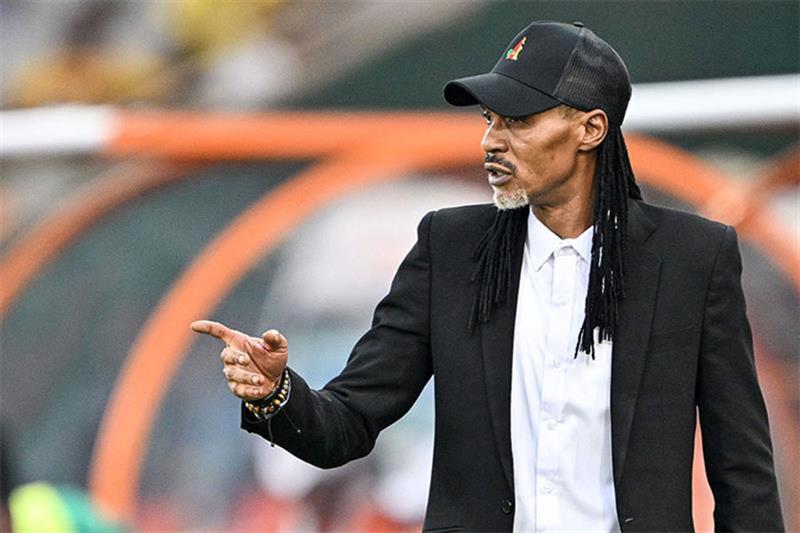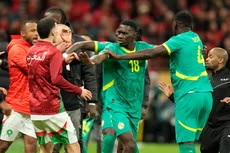Cameroon owes Rigobert Song eight months’ salary amid coaching dispute

Cameroon is once again entangled in a financial dispute with a former national team coach, as Rigobert Song remains unpaid for eight months following his departure as head coach of the Indomitable Lions.
The 48-year-old former defender, who recently took charge of the Central African Republic national team, is reportedly owed €232,000 in salary arrears.
Ongoing compensation issues for former coaches
This latest controversy follows a similar case involving Antonio Conceição, Song’s predecessor, who was awarded €1.85 million in compensation by FIFA after being dismissed in February 2022.
Conceição took legal action against the Cameroonian Football Federation (Fecafoot) and the Ministry of Sports (Minsep) for wrongful termination.
Now, Song finds himself in a comparable situation. Reports from Sport News Africa suggest that when Cameroon opted not to renew his contract, he had already gone eight months without receiving his salary.
His assistant coaches at the time, Sébastien Migné and Raymond Kalla, are also believed to be affected by the unpaid wages.
Confusion over responsibility for payment
The dispute over Song’s compensation is further complicated by the ongoing tensions between Fecafoot and Minsep, with both entities reportedly shifting the responsibility onto each other.
The lack of clarity over who should settle the debt raises concerns that the situation could escalate into a legal battle.
Will song take the case to FIFA?
Given FIFA’s previous ruling in favor of Conceição, Song could potentially follow the same path by filing a complaint with football’s governing body.
???????????? Rigobert Song n’a pas été payé lors de ses huit derniers mois à la tête des Lions Indomptables.https://t.co/x9STxPHcnq#sna #rigobertsong #Cameroun #salaire pic.twitter.com/EfbwDhm5pp
— Sport News Africa (@snewsafrica) February 26, 2025
However, as a former captain of the national team with deep patriotic ties, he may seek a more diplomatic resolution to avoid damaging Cameroon’s reputation on the international stage.
An amicable settlement behind closed doors appears to be the most likely solution, but unless the issue is resolved soon, Cameroonian football authorities may once again find themselves facing international scrutiny over their handling of coaching contracts.
With growing pressure on Fecafoot and the Sports Ministry to address financial obligations to former coaches, this case underscores a recurring problem within Cameroonian football governance—one that could have lasting implications for future coaching appointments.




